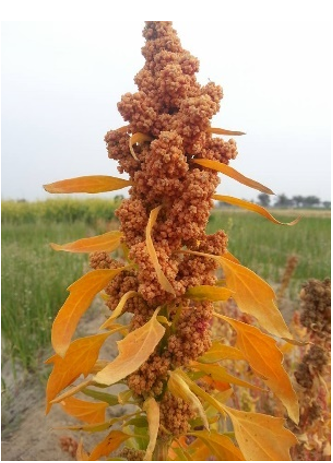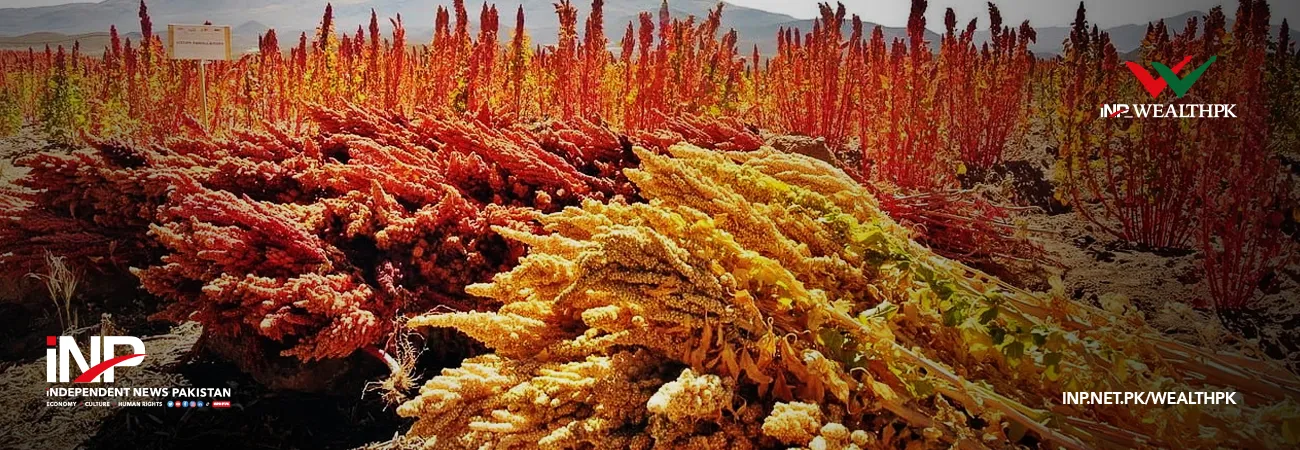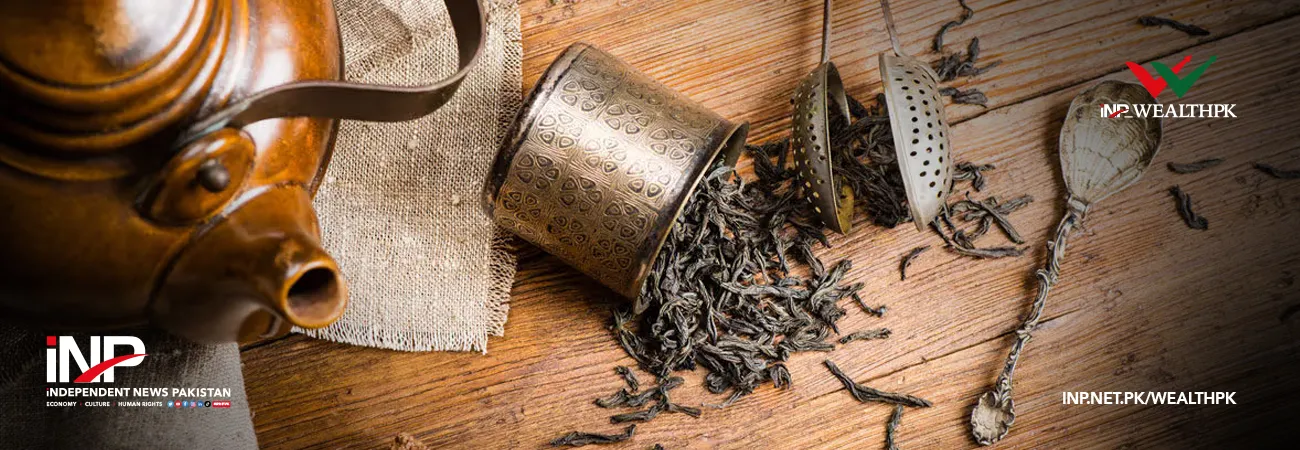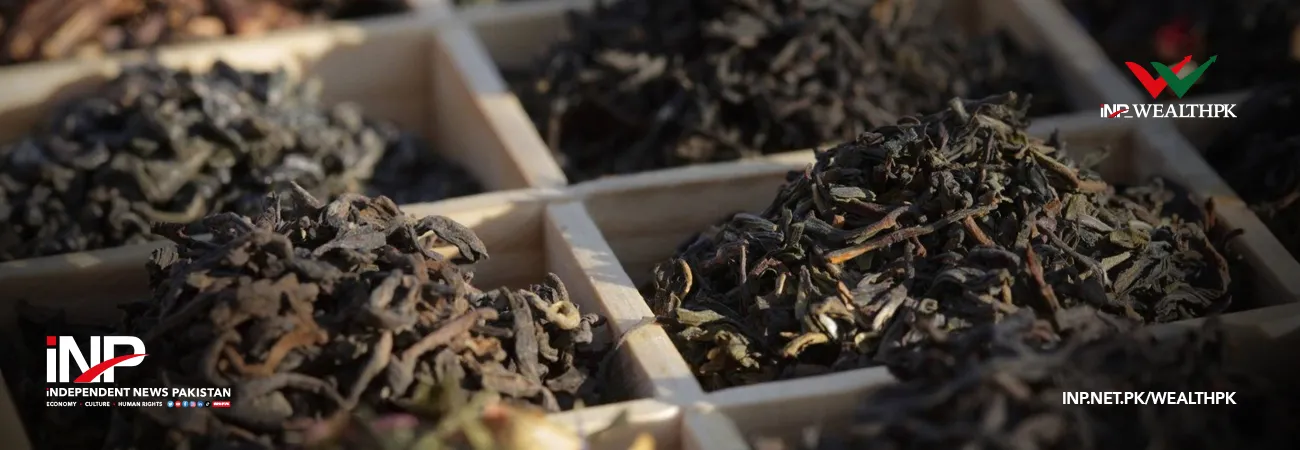آئی این پی ویلتھ پی کے
Azeem Ahmed Khan
Farmers have been asked to cultivate quinoa, a resilient and highly nutritious crop with growing global demand, to increase their incomes and fulfill the country’s food requirements.

Talking to WealthPK, Dr Shahzad Basra, a renowned agronomist and former professor at the University of Agriculture Faisalabad, also asked the government to support quinoa cultivation through awareness campaigns, subsidies, and infrastructure development. He emphasised, “If we invest in quinoa now, it can pay off in the long-term – for our health, environment, and economy.”
“Described as a superfood, quinoa is gaining global attention for its immense health benefits, climate adaptability, excellent market value, and ensuring food security,” he said. Quinoa could become a game-changing cash crop in Pakistan because it also thrives in poor soils, drought-prone areas, and high altitudes, he maintained.
“It can be highly helpful for farmers in arid and semi-arid regions, as it grows well in conditions where wheat and rice struggle,” he added. “This resilience makes it a promising crop for Pakistan, where climate change is impacting traditional crops.” Prof Basra said quinoa has earned global recognition for its amazing nutritional richness. “Unlike most plant-based foods, quinoa contains all nine essential amino acids, making it a complete protein, a rarity in the plant kingdom,” he added.
“While rice and wheat contain around 3-10% protein, quinoa boasts 15-22%, making it a vital food source for vegetarians and populations with limited access to animal protein.” “It is also rich in fiber, vitamins (especially B-complex like folate and B6), and minerals such as magnesium, iron, potassium, and zinc,” he said. “Due to its gluten-free nature, quinoa is suitable for individuals with celiac disease or gluten sensitivity –conditions increasingly common in urban populations.”
Prof Basra also highlighted quinoa’s role in managing various health issues, including irritable bowel syndrome (IBS), polycystic ovary syndrome (PCOS), diabetes and blood pressure. “A low glycemic index helps regulate blood sugar levels, making it safe for diabetic patients.” He noted that quinoa could be particularly beneficial for women with PCOS, a condition affecting many women in Pakistan. IBS, he said, results in improper stomach function, loss of energy, and impaired iron absorption.
“People with digestive issues can often find relief by switching to gluten-free foods such as quinoa,” he added. The agronomist said quinoa’s low sodium content also makes it heart-friendly and beneficial for people suffering from blood pressure, while the leaves of the plant are highly nutritious and add to its value. He said recently quinoa has become a popular part of diet plans suggested by dietitians and food experts for restoration of metabolic syndrome diseases like obesity, diabetes, fatty liver, and arthritis.
“Surprisingly, more than half of the local quinoa is being imported despite the availability of its seed and production technology in Pakistan,” he said, adding that “Quinoa crop has potential for fulfilling not only local consumption requirement but export as well.” “Originating in the Andean region of Latin America, quinoa has been cultivated for thousands of years in countries like Peru, Bolivia, Argentina, Guatemala.
Recognising its potential to combat hunger and malnutrition, the United Nations declared 2013 the “International Year of Quinoa,” while Nasa has declared it a food for scientists going into space in the future,” Prof Basra informed WealthPK. “Pakistan’s quinoa journey formally began in 2019 when researchers developed and approved a local variety named UFQ7,” he said. “The seed was produced using high-quality germplasm sourced from around the world and adapted to local conditions through years of research.”
“The University of Agriculture Faisalabad, and Ayub Agricultural Research Institute are the two main sources for farmers to obtain certified seeds,” he said. “The crop is sown alongside wheat in November or December and harvested by March or April in Pakistan,” he said. “But it requires less fertilizer than wheat and has good resistance to pests, reducing the need for chemical sprays during the Rabi season,” he added.
“Quinoa’s international appeal has opened up new export possibilities for Pakistan,” he said, adding currently reliant on imports, “the country now has the capacity to not only meet local demand but also export quinoa.” “A recent collaboration with a Chinese company could significantly boost Pakistan’s presence in the global quinoa market,” Prof Basra said. “The company found Pakistan’s quinoa yield and quality comparable to China’s, but with lower production costs,” he added.
“A deal is underway where Pakistan will export quinoa to China, which will then market it globally, and this is a huge opportunity.” “As quinoa is still a relatively new crop in Pakistan, currently, it is not widely available in small markets due to limited production. However, it can be found in larger superstores and online platforms.
Farmers have two options: develop their own brands and market their produce directly, or join existing supply chains and collaborate with established brands,” he said. “Quinoa can be used in a variety of dishes, from salads and pulao to desserts and smoothies,” he said. “In Latin America, it is a staple ingredient in everyday meals. It is perfect for breakfast, lunch, and dinner – from salads to cakes and even breads.”
Credit: INP-WealthPk












